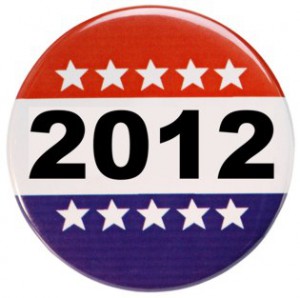Post-Election Analysis: What Does It All Mean for Humanists?

Everyone, take a deep breath. The election is, at long last, over. That little ball of anxiety in your stomach that many of you probably got from worrying that Mitt Romney, who has supported the Religious Right on so many issues, could be President is gone.
This election cycle was an important one for nonreligious Americans, not only because we faced two candidates and parties that have drastically different positions on church-state separation issues, but also because we are starting to be recognized as an important voting bloc. We now make up 20% of the population, and the media is beginning to figure out just how politically powerful we are. Nonreligious Americans should expect in the near future to be courted by candidates for elected office in the same manner that many religious voters are.
That being said, this election season wasn’t exactly the greatest for us. Candidates have said all kinds of unscientific and backwards things, usually because of, or in defense of, their extremist religious beliefs. The party conventions were characterized by their blatant promotion of religion, such as the ridiculous revisionism of American history in favor of religion that took place at the RNC convention or the submission to religious voters that occurred at the DNC convention. Both presidential candidates have less than satisfactory positions on various church-state separation issues, and both have said that their faiths were the reason they got in to public service. And Representative Pete Stark of California, who has worked with the AHA and other nonreligious advocacy organizations and was the first open atheist in Congress, lost his re-election bid.
So where’s the good news? Kyrsten Sinema of Arizona, a friend to the secular community, looks like she will win a Congressional election in Arizona of all places. Some of the more extreme Christian conservatives in government also lost their races, such as Todd Akin and Richard Murdock. Hopefully, this is a sign that American voters are tired of religious fundamentalism in government and are becoming more supportive of a socially tolerant and secular political agenda.
Even the re-election of President Barack Obama is good news for secularism, as the President and his administration have been willing to meet and listen with nonreligious Americans. The President has also worked hard to decrease funding for abstinence-only education, and he has been a strong supporter of scientific research and gay rights. Each of these positions taken by the President have provoked a fight with the Religious Right, who remains determined as ever to advance its unscientific and intolerant political agenda.
At the end of the day, politicians still have a long way to go in being good representatives of their nonreligious constituents. Religious favoritism is still rampant in politics, but it may not always be so. That’s why it is important that humanists share their disbelief with their representatives in government and work to make their opinions known on legislation. We can’t afford to be politically apathetic, especially not when the Religious Right retains so much power in our nation’s capital.
Our community is in a similar place to where the LGBT community was an election or two ago. Atheists, agnostics, and humanists are just starting to be recognized as a powerful voting bloc, and while many Americans may still have negative feelings about us or our disbelief, that hatred is likely to fade away as our disbelief becomes more mainstream. The nonreligious community, just like the LGBT community, is finally starting to move beyond being just a marginalized movement, and is instead being recognized for what it truly is: a significant group of Americans that have an interest in the way their lives are being run and who now have the power to influence laws and those who make them.
It may take another election or two before we are truly able to make our political mark, but have no doubt that that day is coming.
